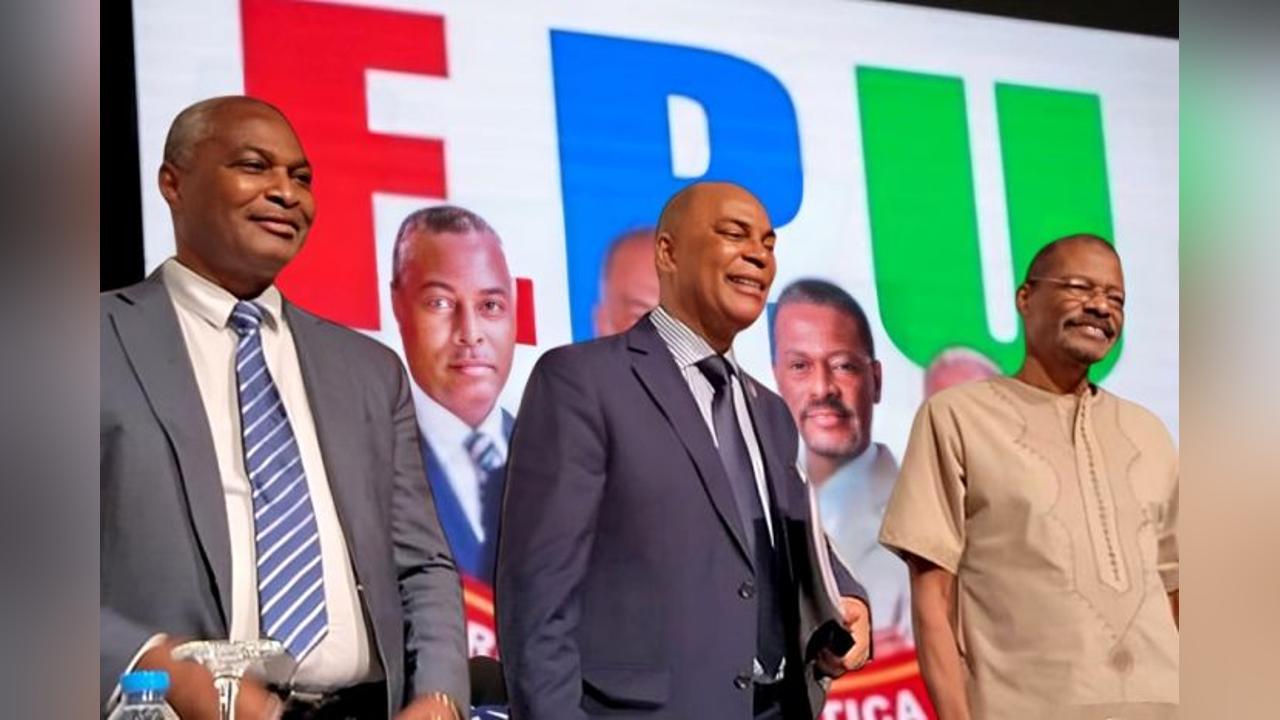Africa-Press – Angola. The United Patriotic Front collapsed last week. The breakup of the Angolan opposition coalition is seen as a victory for the ruling party. The MPLA will be able to run in the 2027 elections with its opponents divided.
The pact signed in 2021 between the National Union for the Total Independence of Angola (UNITA), PRA-JA and the Democratic Bloc was broken before the scheduled deadline, which was 2027.
PRA-JA, led by Abel Chivukuvuku, said last week that it had been “expelled” from the United Patriotic Front (FPU). The political force accused UNITA of trying to assassinate the character of its leader, of not fulfilling the agreement regarding the distribution of funds from Parliament and of refusing to create an executive secretariat that would deal only with FPU matters.
The “Black Rooster” considers Chivukuvuku a “traitor” who has stopped taking an interest in the affairs of the Patriotic Front since the legalization of his party. The leader of the PRA-JA is pointed out as the main culprit of the “political divorce” in the FPU.
Is that really the case?
For political commentator Celestino Lumbungululu, Chivukuvuku “failed badly” in defending the interests of Angolan society, focusing more on his own cause. “After the legalization of his party, he automatically became destabilized, because he was not analyzing how he could focus,” Lumbungululu told DW.
But Feliciano Lourenço, another political commentator, argues that the PRA-JA leader is not the only one to blame for the opposition’s disunity. According to him, UNITA president Adalberto Costa Júnior is also responsible for the premature death of the project that aimed to remove the Popular Movement for the Liberation of Angola (MPLA) from power.
“Adalberto is not a courageous leader. During the political campaign, his speeches said that he would not allow fraud. But after the MPLA assumed that it would remain in power, he said that he never spoke of fraud. So, he is not a coherent individual, and Chivukuvuku is not the only ‘villain’ in this story.”
Common goals
The dissolution of the Patriotic Front reflects the weakness of the opposition leaders, according to analyst Celestino Lumbungululu. For him, the opposition does not share common goals.
“The opposition in Angola still needs to sit at the same table and outline a single focus. What do they want, after all? To be the opposition? To have seats in the Assembly? To have good cars? Or to solve Angola’s problems?”, he asks.
Feliciano Lourenço, in turn, considers that the United Patriotic Front failed from the outset, as it was created as a party project and not as a State project.
“The United Patriotic Front is a project for honest people, with serious and courageous leaders. And unfortunately, the Front did not have that. What we see is a crisis of leadership and a tremendous fragility in the very structure of the Angolan opposition.”
Former UNITA president Isaías Samakuva — a critic of the FPU — stated on Saturday (24.05) that he was always certain that the project had “no legs to walk on”.
According to Samakuva, the opposition will only be able to unite if it has the same goals, something that did not happen in the FPU. “If the opposition works, I think it has the conditions to win,” he added.
ANGOLA24
For More News And Analysis About Angola Follow Africa-Press






